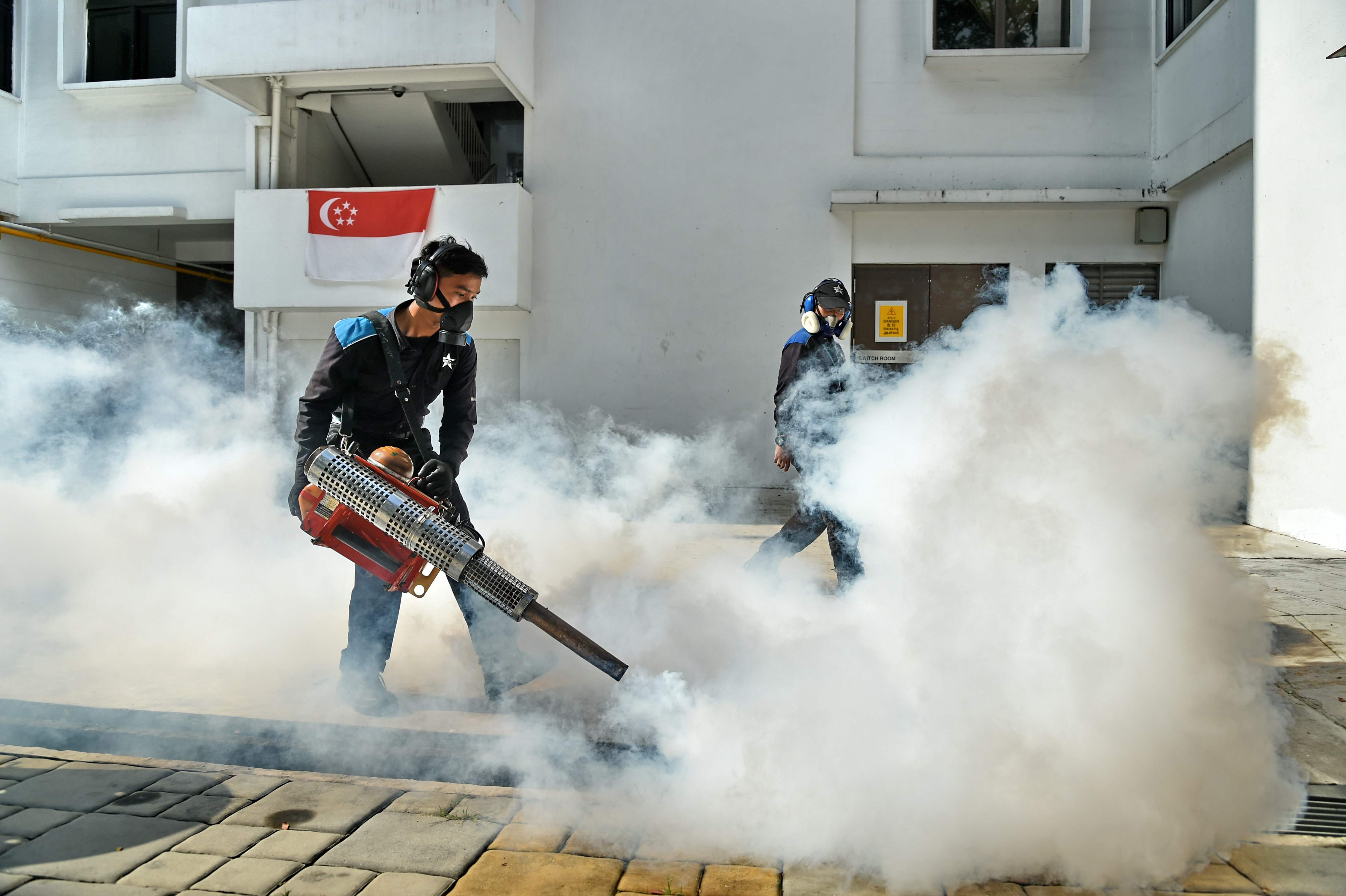
Singapore: Confirmed cases of Zika virus in Singapore rose to 82 on Tuesday, as the United States joined a growing list of countries warning pregnant women or those trying to get pregnant to avoid travel to the city-state.
The mosquito-borne Zika virus, which has caused explosive outbreaks in the Americas and the Caribbean since late last year, poses a particular risk to pregnant women because it can cause microcephaly, a severe birth defect in which babies are born with abnormally small heads and underdeveloped brains.
On Tuesday, the United States warned pregnant women not to travel to Singapore, joining Australia, Taiwan and South Korea.
The warnings followed news that Zika transmission appears to be occurring outside of the original cluster, with at least five of 26 new cases confirmed late on Tuesday detected in the Aljunied area in the southeast of Singapore, the health ministry and National Environment Agency (NEA) said in a joint statement.
Singapore has advised pregnant women to take a free Zika test if they showed any symptoms or if their partners tested positive. "This is regardless of whether they have been to Zika-affected areas," health officials said in a statement.
The outbreak and advisories come as the tourism industry in one of the world's busiest travel hubs already faces weak global economic growth. Singapore's Tourism Board said it was premature to consider any impact on the sector, adding it remained a "safe travel destination".
More than 55 million people pass through Singapore's Changi airport every year. In the first half of this year, tourism arrivals topped 8 million, around 1 million more than a year earlier.
MOZZIE SPRAY SALES
Singapore reported its first case of locally-transmitted Zika at the weekend, and the number of confirmed infections has risen steadily since then. At least three dozen patients have made a full recovery.
Neighbouring Malaysia and Indonesia have stepped up protective measures, introducing thermal scanners at airports and border checkpoints with the island state. Such measures, however, will only identify symptomatic cases of Zika, but only one in five people have symptoms of the virus, which include fever, rash, joint pain and pink eye.
Singapore residents responded to government calls to be vigilant and to take precautions against mosquito bites.
Online retailer Lazada Singapore said sales of insect repellents jumped five-fold in the past three days. FairPrice supermarkets and Watsons pharmacies said their sales of such products had doubled.
Most of the early infections were among foreign workers, hundreds of thousands of whom, mainly from the Asian sub-continent, work on Singapore's construction sites and in the marine sector.
The Singapore government has not said where the infected foreign workers are from. The foreign ministry directed queries to the health ministry, which did not respond to Reuters questions on the issue. The Ministry of Manpower also did not respond to a request for comment made outside working hours.
The High Commission of Bangladesh, which represents the largest community of foreign workers, said none of those infected were Bangladeshis, and the Thai foreign ministry said none were from Thailand. The embassies of China, India, Sri Lanka and Myanmar said they had not been notified by Singapore whether their citizens were among those infected.
Authorities inspected thousands of homes in seven parts of Singapore, including five foreign worker dormitories, spraying insecticide and removing potential mosquito breeding habitats.
The NEA has inspected about 5,000 premises in and around the initial outbreak area, issuing 400 notices to owners of buildings they could not access. The NEA can force entry into those premises if needed.
Zika was first discovered in Uganda in 1947. It caused clusters of human infections from the 1960s to 1980s across Africa and Asia, according to the World Health Organization.
The outbreak in the Americas was caused by a Zika strain from Asia, possibly carried to Brazil through travel to a sporting event. Many experts believe once infected, Zika produces lifelong immunity.
"Unfortunately, it is not clear the level of immunity that is currently in Asia," said Alessandro Vespignani of Northeastern University in Boston.
WHO declared Zika a global health emergency because of its link with microcephaly. In Brazil, Zika has been linked to more than 1,800 cases of microcephaly.